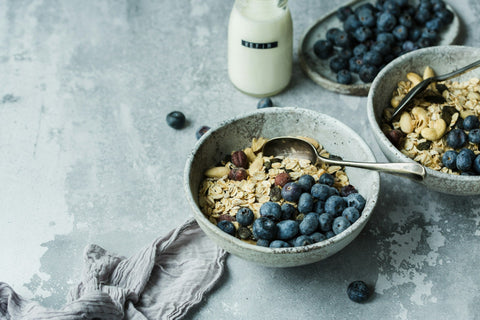The concept of detoxing has gained immense popularity in the health and wellness industry, with claims that specific diets, juices, or supplements can remove toxins from the body, improve digestion, and boost energy levels.
While some believe in the benefits of detox programs, others argue that the body-cleansing truth is that the human body is designed to eliminate waste naturally.
Understanding the natural detox process and the role of nutrition in supporting the body’s built-in cleansing mechanisms is essential for making informed health choices.
The Science Behind Popular Detox Diets

Detox diets come in many forms, with juice cleanses, fasting regimens, and supplement-based detoxes being the most common. Juice cleanses involve consuming only fruit and vegetable juices for several days, with claims that they flood the body with nutrients while eliminating toxins.
However, while these juices contain vitamins and antioxidants, they lack fiber and protein, which are essential for digestion and long-term metabolic health.
Fasting, including intermittent fasting and water fasting, is another popular detox method. Some research suggests that short-term fasting may support how the liver detoxifies by allowing it to focus on processing waste rather than digestion. (1) However, extended fasting can lead to nutrient deficiencies and muscle loss if not done correctly.
Supplement-based detox programs often include herbal teas, fiber supplements, and liver-supporting capsules. While some herbs do promote liver function, many detox products lack scientific validation.
The body’s liver, kidneys, and digestive system already work around the clock to remove waste, making extreme detox plans unnecessary. Instead of restrictive cleanses, focusing on the best foods for detox and a balanced diet provides sustainable support for the body’s natural detox process.
Foods That Support Natural Detoxification

The liver is the body’s primary detoxification organ, filtering harmful substances from the bloodstream and breaking them down for elimination. Supporting how the liver detoxifies with liver-cleansing foods ensures it functions optimally without the need for drastic dietary changes.
Cruciferous vegetables like broccoli, kale, and Brussels sprouts are excellent liver cleansing foods that help the body process toxins efficiently. These vegetables contain compounds that activate liver enzymes responsible for neutralizing harmful substances. Including a variety of cruciferous vegetables in the diet can naturally enhance detox pathways. (2)
Lemon and citrus fruits aid in digestion and hydration, essential components of the natural detox process. Lemon water, often associated with detox diets, stimulates liver function and helps flush out waste products. While drinking lemon water alone won’t “cleanse” the body, it contributes to better digestion and hydration, supporting overall detoxification. (3)
Fiber-rich foods, such as beans, whole grains, and flaxseeds, play a crucial role in gut health and toxin elimination.
Fiber binds to waste products in the digestive system, promoting their removal through regular bowel movements. Without sufficient fiber, toxins can linger in the gut, leading to bloating and sluggish digestion. (4)
Herbs and spices, including turmeric, ginger, and cilantro, have been linked to improved detox pathways. Turmeric supports how the liver detoxifies by reducing inflammation and promoting bile production, which aids digestion. Ginger enhances circulation and digestion, while cilantro may help the body eliminate heavy metals. Incorporating these herbs and spices into meals can provide gentle, ongoing detoxification benefits.
Practical Tips for Sustainable Detoxification

Instead of relying on short-term detox programs, gradual, lasting dietary changes are a more effective approach to cleansing the body naturally. Eating more whole and unprocessed foods ensures the body receives essential nutrients for proper detoxification. Fresh vegetables, lean proteins, and healthy fats support liver function and digestion, promoting long-term wellness.
Reducing alcohol, processed sugar, and artificial additives can significantly ease the liver’s workload. Excess alcohol consumption forces the liver to focus on metabolizing alcohol rather than processing toxins, while refined sugar contributes to inflammation and metabolic imbalances. Minimizing these substances allows the body’s natural detox process to work more efficiently.
Hydration plays a critical role in detoxification, as water helps flush out waste products through urine and sweat. Drinking adequate water throughout the day supports kidney function, while herbal teas like dandelion or green tea can provide additional antioxidant benefits.
Conclusion

The body cleansing truth is that extreme detox diets and supplements are unnecessary for maintaining health. The body already has a highly effective natural detox process, with the liver, kidneys, and digestive system working continuously to remove waste. Rather than following restrictive cleanses, focusing on the best foods for detox, such as cruciferous vegetables, fiber-rich foods, and citrus fruits, can support how the liver detoxifies in a sustainable way. Individuals can promote natural detoxification by making small, consistent dietary and lifestyle changes without resorting to drastic methods. Long-term health is best achieved through balanced eating habits, proper hydration, and reduced processed foods—proving that true detoxification is a lifestyle, not a short-term fix.
References
1. Kramer MS. The Benefits of Intermittent Fasting: Detox or Redux? In: Kramer MS, editor. Believe It or Not: The History, Culture, and Science Behind Health Beliefs and Practices [Internet]. Cham: Springer Nature Switzerland; 2023 [cited 2025 Mar 14]. p. 101–8. Available from: https://doi.org/10.1007/978-3-031-46022-7_11
2. Nho CW, Jeffery E. The synergistic upregulation of phase II detoxification enzymes by glucosinolate breakdown products in cruciferous vegetables. Toxicol Appl Pharmacol. 2001 Jul 15;174(2):146–52.
3. Kim MJ, Hwang JH, Ko HJ, Na HB, Kim JH. Lemon detox diet reduced body fat, insulin resistance, and serum hs-CRP level without hematological changes in overweight Korean women. Nutr Res. 2015 May;35(5):409–20.
4. Kieffer DA, Martin RJ, Adams SH. Impact of Dietary Fibers on Nutrient Management and Detoxification Organs: Gut, Liver, and Kidneys12. Adv Nutr. 2016 Nov 10;7(6):1111–21.


